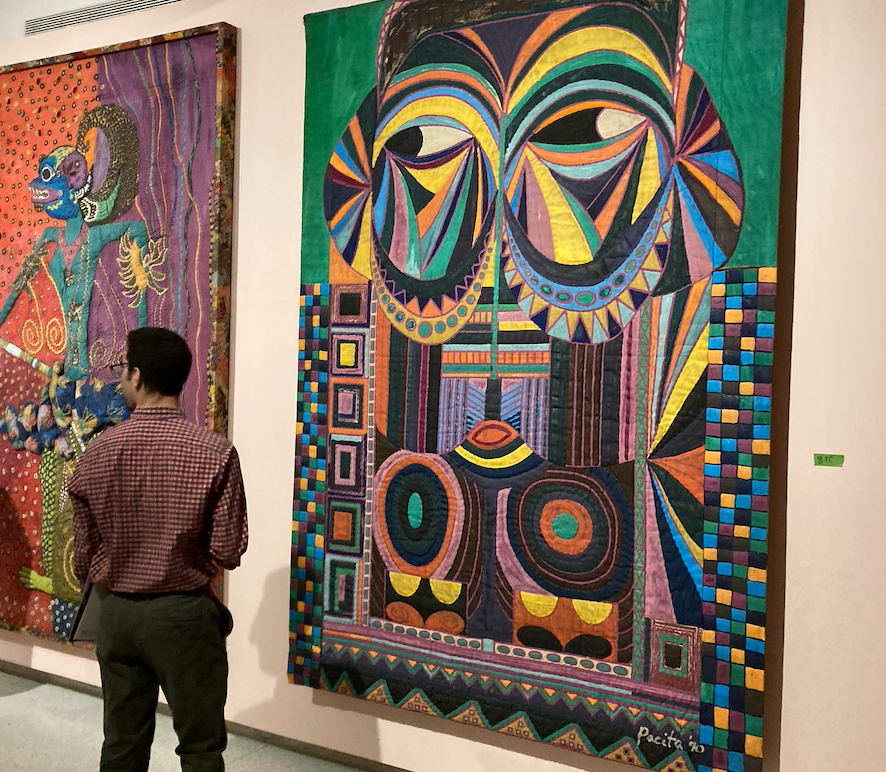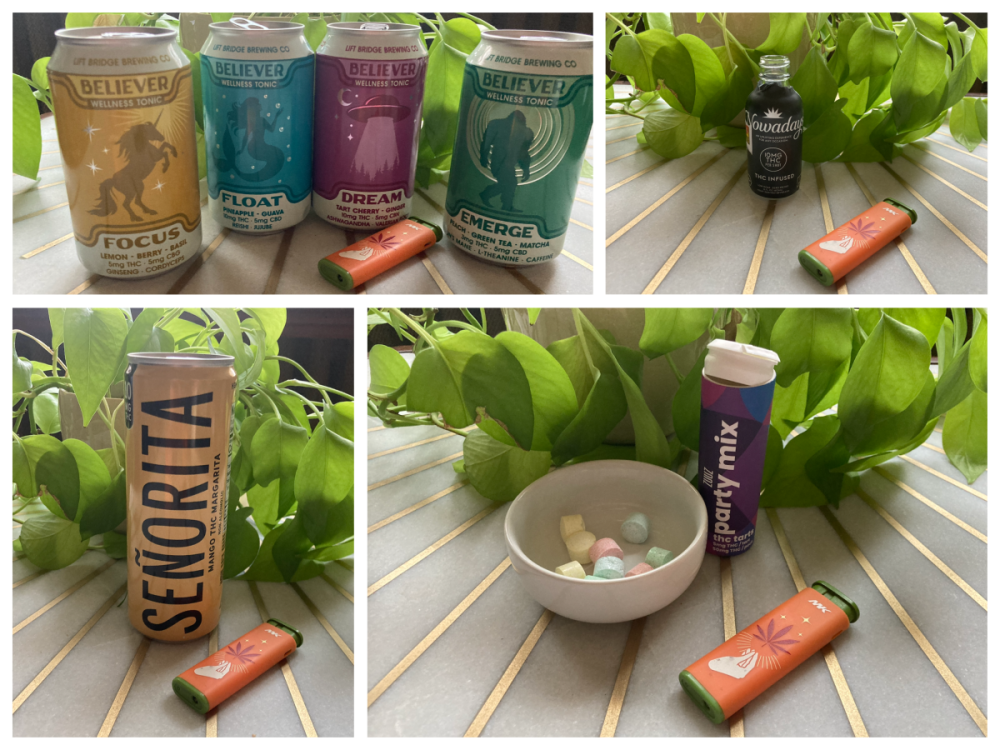Pacita Abad hated white walls. So, for her retrospective exhibition at the Walker Art Center, the galleries have been painted: pale pink, golden yellow, deep red, mint green, pewter. It’s just one of the ways that the museum has been transformed to showcase Abad’s explosions of color, humanity, and pure joy.
The main takeaways from this show? Pacita Abad was a badass. She was a renaissance woman, a gentle radical, and a self-professed “late bloomer” in the art world. Born in the Philippines in 1946, Abad eventually made her way to the U.S. in the '70s, becoming a citizen in the '90s. It’s hard to imagine she stayed anywhere for too long, however, as she lived, worked, and traveled in over 60 countries in her lifetime.
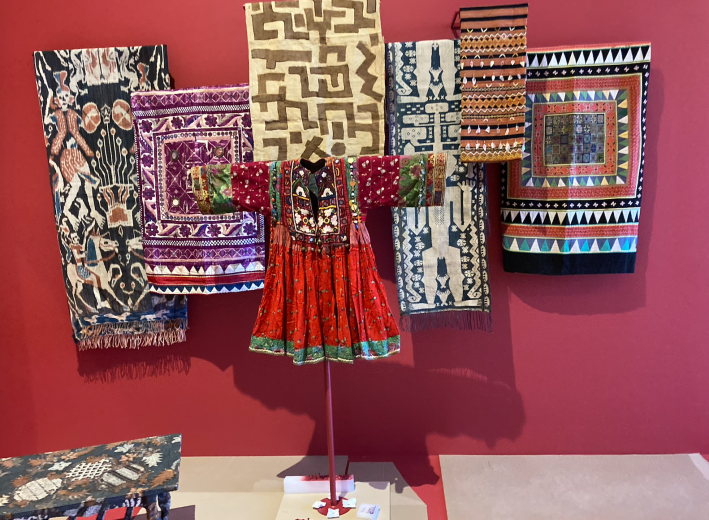
You can see this transnational adventurism in her work, which runs the gamut from massive “trapuntos” (quilt-like paintings that she stitched and stuffed by hand), to a big metal door she welded into sculpture after a home break-in, to clothing designed for theater productions, to catalog-sized party menus she made when she entertained friends.
Abad considered herself an “on the ground artist,” meaning she sought close connections with the people and cultures of the areas she visited, sharing perspectives and commonalities between immigrants, refugees, and people of color throughout the world. During her time in Thailand, she visited Cambodian refugee camps, where her sister worked as a medical technician. The resulting paintings, which she referred to as “portable murals,” feature images of people escaping from their homeland, mothers feeding their children, and people standing behind chicken wire fences, their fates and final destinations in limbo.
“I feel like my role as an artist is to make sure that when the media coverage ends, my paintings are still looking at you,” she said of these pieces.
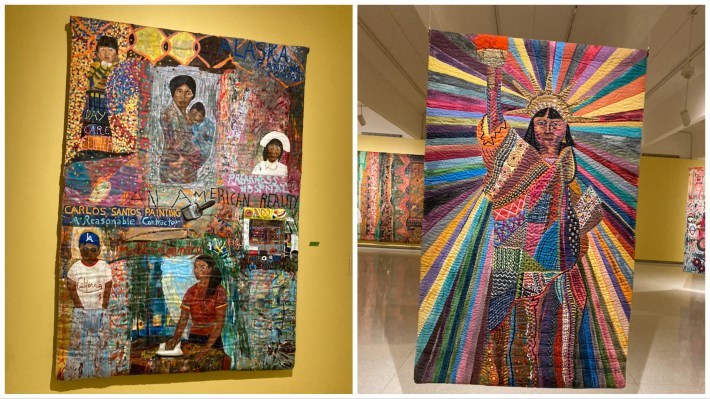
Immigrant experiences abound here. Her trapuntos features sex workers in the Manila, shopkeepers in Korea, and a mixed marriage bride and groom in India. There are pieces about hopes and dreams, as well as limitations and disappointments. There are harrowing pieces of people at detainment centers in the U.S., Thailand, and Haiti, and triumphant pieces celebrating folks who have forged their way in a world that is always blending cultures and experiences, whether we’re willing to see it or not.
Other pieces include mixed media collages she made toward the end of her life (she died of cancer in 2004), as well as handmade kites, ceramics, and dinner party menus covered in batik fabric. (There’s a small room of ephemera you’ll want to make sure you don’t miss.)
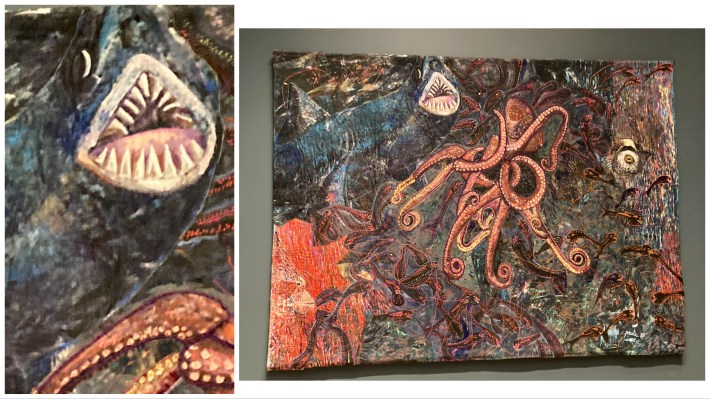
The exhibition ends underwater. Pacita Abad was an avid scuba diver, and it’s easy to imagine how the fish, reefs, and other colorful creatures must have delighted her. In the pewter-painted gallery space, the last room of the show, you can immerse yourself in her scuba-inspired works, which feature ravenous sharks, glittering fish, and neon plants. It’s all very Life Aquatic meets Sea Life at Mall of America. The huge trapuntos should be appreciated both up-close and from far away. It’s a lot of fun to take a piece in from across the room to best see a giant octopus, and then walk up to discover schools of fish or a hidden eel, made from buttons, tiny shells, and bits of glitter.
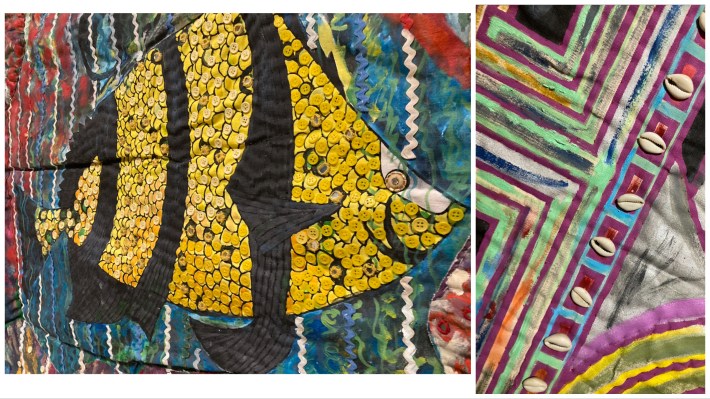
This is a show about color, and not just of the ROYGBIV variety. It touches on human tragedy and struggles, but also has a lot of exuberant joy and successes. This is a show about human experiences in all their mundane, messy, and triumphant glory, and a celebration of an artist who lived a life of discovery, thoughtfulness, and, most importantly, human connection.
“Pacita Abad”
Walker Art Center
The show opens tonight (Friday, April 14) at a Walker After Hours party; general admission starts Saturday, April 14
Through September 3
